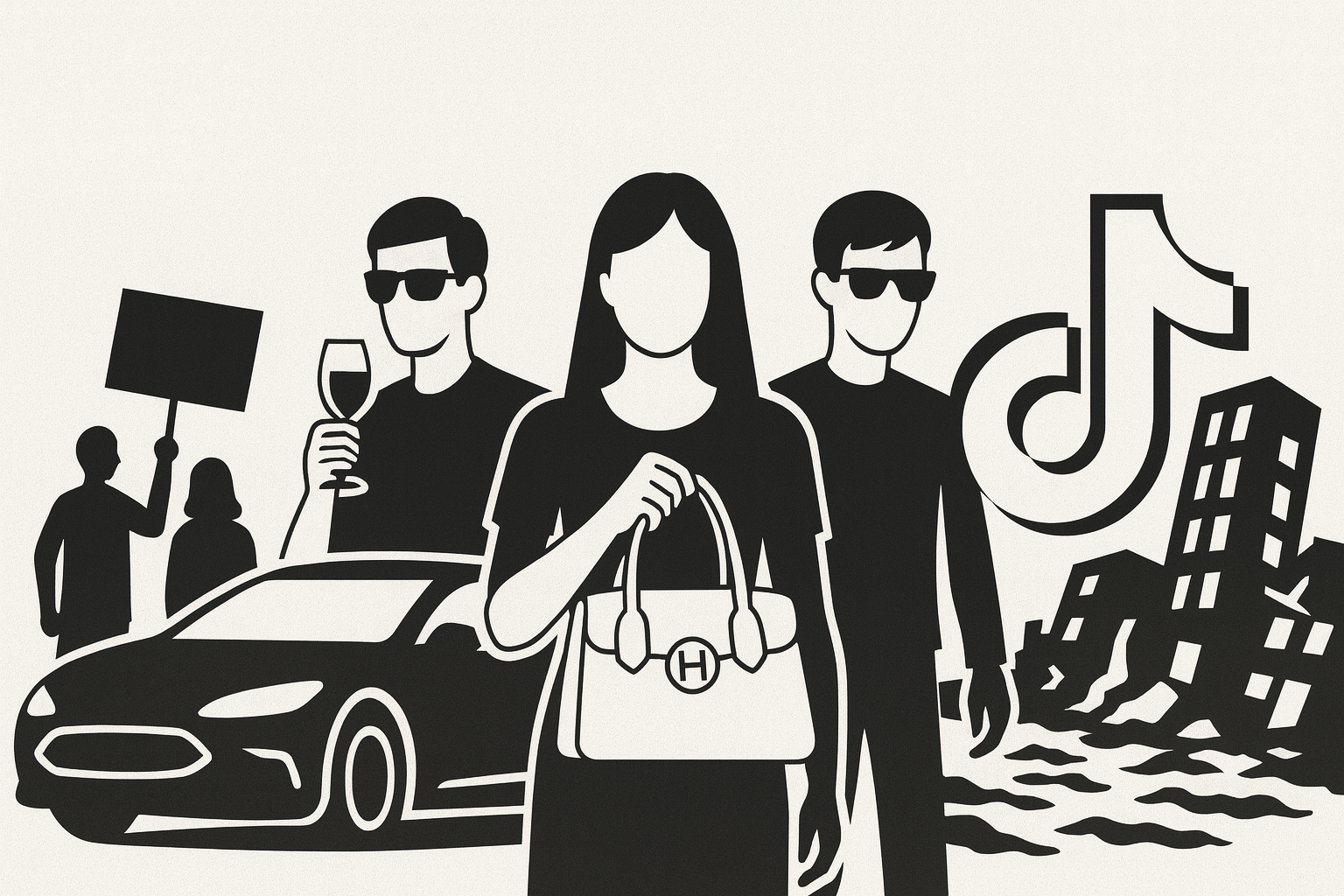TikTok in the Philippines has become more than a platform for dance challenges. It is now being used to expose the lavish lifestyles of “nepo babies” linked to corruption scandals. What began online is reshaping civic conversation. Here are five things you should know, and why it matters for the country’s future.
1. It Might Have Started With Vico
In August 2025, Pasig Mayor Vico Sotto commented on the widely discussed Discaya interviews by Korina Sanchez and Julius Babao, suggesting they looked like image-repair pieces. His remarks set off conversations about corruption and privilege. Soon after, TikTok users began posting viral content calling out the children of flood-control contractors flaunting designer bags, sports cars, and private jets. By the time the trend was in full swing, Vico added another remark that ostentatious displays of wealth are “bad regardless of the source,” reinforcing the message.
2. TikTok Became the People’s Watchdog
Hashtags like #FloodControlNepoBaby turned the platform into a civic stage. Ordinary Filipinos stitched videos comparing luxury lifestyles to flooded neighborhoods and questionable contracts. The backlash pushed some accounts offline, while agencies like the Bureau of Customs and the BIR began investigating whether luxury assets were declared and taxed. TikTok shifted from a space for memes into a tool for accountability.
3. Indonesia’s Warning for the Philippines
Right now, Indonesia is being shaken by mass protests over corruption and privilege. Outrage at lawmakers’ huge housing perks and a proposed property tax hike has brought tens of thousands into the streets. Government offices have been torched, politicians’ homes attacked, and police have cracked down with mass arrests. These protests show how quickly frustration can leap from social media to the streets. For the Philippines, the lesson is clear: if institutions ignore rising anger, digital outrage could spill into real-world unrest here too.
4. From Outrage to Civic Action
Sustaining the momentum means pushing beyond viral exposure. That requires sharing responsibly, supporting watchdog journalism, demanding transparency in government contracts, and, most importantly, remembering these issues during elections. With 2028 on the horizon, Filipinos will have a chance to turn online indignation into political accountability.
5. Why It Matters for the Future
This is more than just a TikTok trend. It reflects a shift in values, where flaunted wealth now provokes anger instead of admiration. Social media has become a civic arena where young Filipinos lead the charge. As Cardinal Pablo Virgilio David put it, “It is obscene when sudden wealth from corruption is paraded as a model of success.” His words echo the moral weight behind the movement. If institutions act, this could be remembered as a turning point. If not, Indonesia’s unrest shows what happens when anger is left unanswered.
What began with one mayor’s comment and a flood-control scandal has grown into a cultural reckoning. Whether it becomes reform or fades as just another viral moment depends on what Filipinos do next, and how they vote in 2028.
Disclaimer: This article is a commentary piece and does not reflect the official editorial position of NewsWatchPlus.

